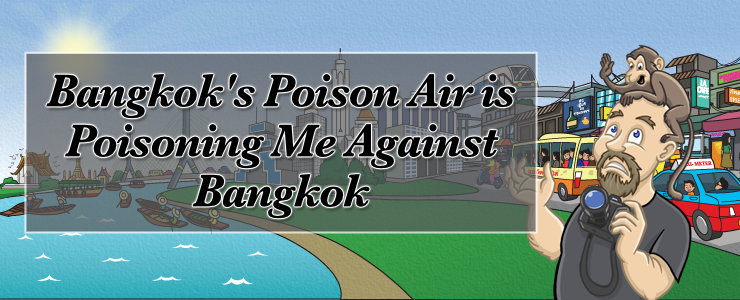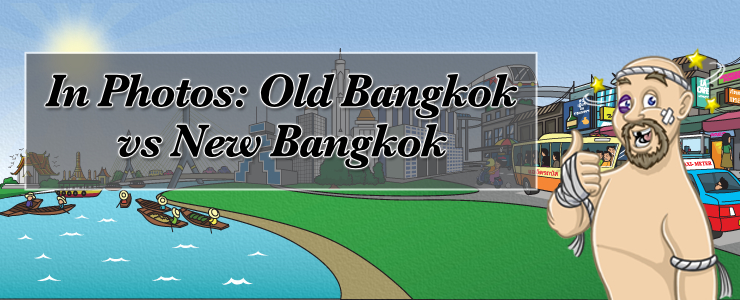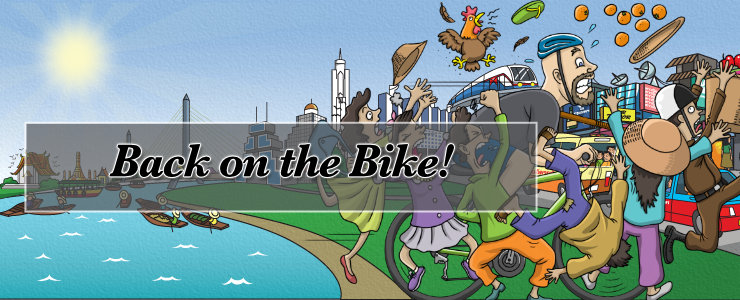Unless you’re tied into the Thailand business community, it’s easy to not have heard about the upcoming ASEAN Economic Community, or AEC. If you’re not doing business here, it likely won’t matter to you what it is, but if you are – or if you’re interested in the shifting economic and social goings-on in Southeast Asia – you should definitely do a bit of reading on it. The only reason I know about it is because I work for a business magazine, and all indications are that if Thailand wants to stay competitive when the AEC goes into effect in 2015, it’s got a lot of work to do.
From Wikipedia:
The mission of the AEC is to develop a single market and production base that is stable, prosperous, highly competitive and economically integrated with effective facilitation for trade and investment in which there is free flow of goods, services investment, skilled labours, and freer flow of capital.
Very basically, the countries belonging to the AEC – Brunei, Cambodia, Indonesia, Laos, Malaysia, Myanmar, The Philippines, Singapore, Thailand and Vietnam – are moving toward an EU-style trade region. The biggest change will come with the elimination of trade tarriffs, which – if you know anything about Asia – are currently so tied up in red tape, under-the-table payments and customs inneficiency that it’s a wonder anything gets moved at all. The AEC will put all of this mumb-jumbo under a single umbrella, effectively making the borders between countries almost non-existant if you have the right paperwork. Think about that for a second; think about how many people that will affect – that alone will have huge consequences.

It’s just a trade pact. What could go wrong?
Another way in which it will impact ASEAN is in the free flow of labor. From the AEC Blueprint:
Free flow of trade in services is one of the important elements in realising ASEAN Economic Community, where there will be substantially no restriction to ASEAN services suppliers in providing services and in establishing companies across national borders within the region.

You ride that arrow and you let it know it’s been ridden!
Take these same examples and apply it to hotels (which house tourists, one of Thailand’s main economic drivers) or hard drive factories (Thailand is one of the world’s largest hard drive exporters) and you can see what type of snowball effect it may have.
Just for shits and giggles, let’s look at another example: One sector expected to grow when AEC is implemented is tourism – a major part of the Thai economy – due to the elimination of visa requirements for tourists from ASEAN countries. Sounds great! But hang on – other countries are hungry for tourist bucks too, so the Thai tourism sector will have to improve its quality. To do this, the Thai Department of Tourism is raising its standards so that all tour guides will need to have better second-language skills. Which means better language education. Which means more qualified teachers. Which means paying teachers well enough that they don’t bail for Singapore or Japan where teachers make more money. A good story in the Bangkok post outlines some of the problems; seems that the powers that be know things will be changing, but…you know…This Is Thailand.

Those are just two small examples. Clearly, big changes are coming that will have a very, very big effect on how Thailand develops over the coming decades. Business leaders in Thailand are well aware of this – even the Thai government is urging Thais to hurry up and invest in their neighbors before it’s too late. So what can Thailand do to ensure it doesn’t get left behind?
Thailand is aware that in order to improve competitveness, it has to improve its capability in human capital through improving availability and quality of education, and fostering improvements in productivity and innovation. To do this, there needs to be more partnering between the government (e.g. ministires of education, industry and labor) with industry/employers in a productive dialogue on how to improve Thailand’s competitiveness and raise standards of living at the same time. We are all stakeholders in the success of the country.





I think that you are looking at the positive side of this, which is good. I'll come at it from the cautious side. Not to spoil your party, but just for shits and giggles.
For one, it will be very difficult to break old habits, especially when there is money under the table. Government officials and their pals get used to being in the middle and accepting the bribes that grease the wheels. They will fight back in one way or another because that's a real threat to their livelihood. Let's take a Myanmar example to illustrate that point. In Myanmar the tax on imported cars is somewhere in the ridiculous range (seriously like 1000%), so some clever people tied to the government will "import" Japanese cars and switch out the Toyota symbols for ones of a "Myanmar car" company, thereby skirting the import tax. Now they can sell cars at a higher margin since everyone else has to pay the import tax. I guarantee those guys don't want to give up that business and they will do everything they can to put loopholes in the laws so that they can continue their position. Habits are hard to break.
There will also be resentments as workers move around the ASEAN countries to get jobs. Look at the negative stereotypes that Western Europeans have towards Eastern Europeans as the latter take up many of the "low-skilled" jobs. Expect this to happen as the labor force becomes more flexible and people get annoyed that there is someone else out there that is willing to do their job cheaper.
Of course, overall, more trade equals better economies. So, yes, things will improve. How much, I'm not sure (especially in Myanmar where the majority of investment will be in non-renewable resources), but in general it is a good thing.
Growth! Growth! Growth!
Since when did life become all about chasing the dollar and economic growth, everyone talk about it like it is the holy grail.
I bet if there was a referendum in the EU whether too stay in or not all the wealthy countries would bail out, after all I have not seen England too eager to throw their lot in and join up.
So the question will be who benefits? And are the 'benefits' being defined correctly, and does the general population want these 'benefits'?
It is nice to see the economic growth numbers on a computer screen but how many 7 day per week 12 hour day future Cambodian factory workers sleeping in a bed in split shifts are better off than they were fishing the Mekong and growing a private vegetable/rice patch and spending time with their family?
I think that will be awesome new times. After all it will be a good thing for the region. Hard to tell who will profit most and who will profit the least. Thailand has some good characteristics in the race. If only being the most developed in terms of infrastructure of the countries with cheap wages. And honestly i don't think the wages for low qualified labor will change much, cause over history they have hardly changed much in most countries. Unqualified labour is probably that group that won't profit much from this.
Also various gvmt have pretty much messed up in Thailand so far over the last decade, yet the economy has grown significantly, and so has the standard of living (again not for the low qualified and poor). You could as well question the influence gvmts have in this country at all. It might be totally overrated.
Another great blog Greg. I really enjoy the breadth of topics you take on.
Here in Malaysia the other day, I was chatting with a friend about AEC’s launch in 2015 and the single biggest factor against Thailand we kept coming up against (a country we both love) is peoples’ lack of English skills. Plain and simple in this day and age and in this region it’s sink or speak English.
I owned/ran a tour company offering experiences in SE Asia for many years and one small example is the brutal English skills of English-speaking guides. Guides in other countries we operated in were way better. Once the borders open watch for lots of foreigners working in hotels and Thais wonder why they lost their jobs.
Another interesting point about Myanmar labourers is the fact that just a few months ago the government was proposing sending them all back home so they’d stop taking jobs away from Thais. Hardly preparing for the future that’s right around the corner.
Keep up the good work Greg!
Thanks Scott, some good points here. I might even take them and write another blog post about this…with proper credit, of course. 🙂